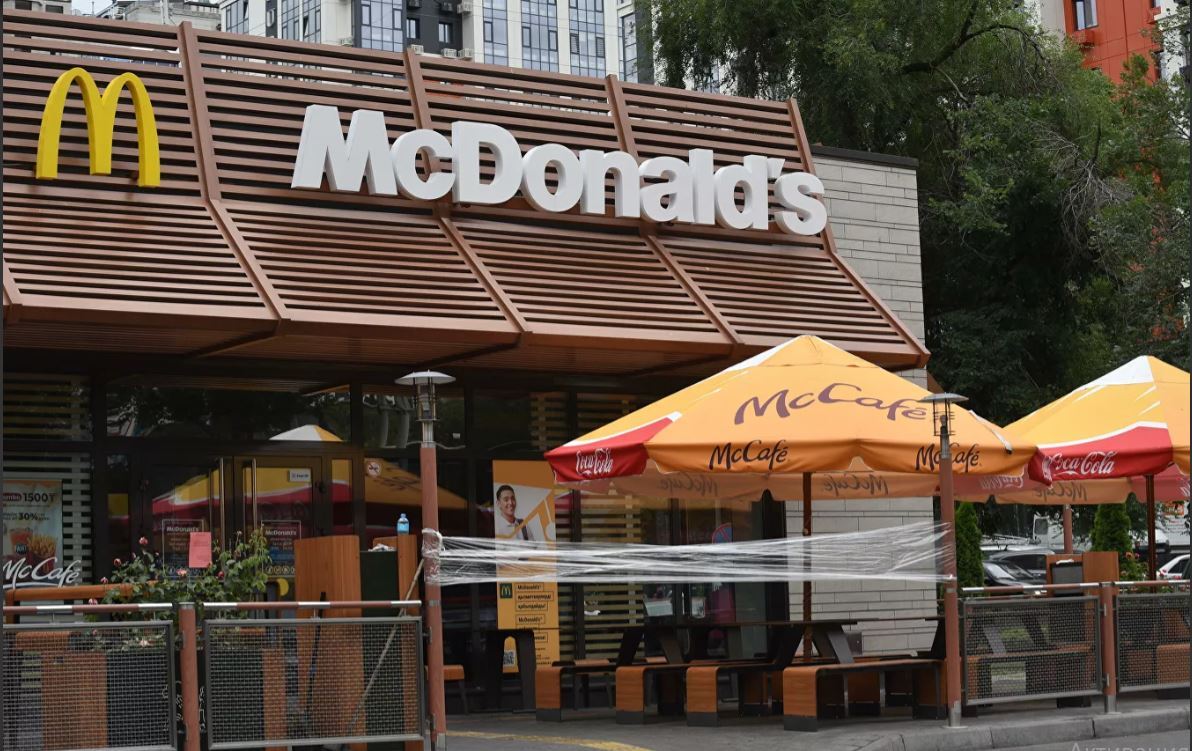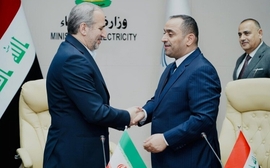Famous American fast-food chain McDonald's is set to leave Kazakhstan due to disruptions in meat supplies triggered by Russia-Ukraine war.
According to a recent report by Bloomberg, although Kazakhstan does not fall under restrictive measures against Moscow, the fast-food giant banned its local franchisees from procuring cutlets from Russian suppliers, leaving the nation without a substitute for meat supplies.
“The world’s biggest fast-food chain will withdraw its trademark golden arches from the nation of 20 million that borders Russia to the north after only six years,” Bloomberg revealed the details on Wednesday, citing people familiar with the matter. “Russia’s invasion last year has upended global supply chains and bounced back to the former Soviet republic.”
According to sources, Kazakh companies were unable to purchase meat patties from local or European suppliers, as higher prices and costs to transport goods across the country would have negatively impacted their businesses.
Before Russia began its military campaign in Ukraine, McDonald’s in Russia, Kazakhstan and Belarus relied on the same suppliers.
Since Russia launched what it calls a “special military operation” in Ukraine, Western nations have upped the pressure on Moscow through severe sanctions that have crippled the country’s economy. Western powers targeted several large financial institutions, Russian sovereign debt and wealthy individuals. Sanctions on Russia’s foreign debt envisage that the country can no longer raise money from Western financial institutions for state financing.
Dozens of international companies, including McDonald's and ExxonMobil, have abandoned or scaled back their operations in Russia in response to its invasion of Ukraine.
Meanwhile, Kazakhstan has established itself as a new suitable location for companies that want to keep their presence in Eurasia amid the current geopolitical developments.
In mid-July, Kazakh President Kassym-Jomart Tokayev instructed the government to create favourable conditions for the relocation of international businesses that have left Russia. He stressed that the measure should boost the production of goods.
With a population of slightly more than 19 million, Kazakhstan is the wealthiest and largest country in Central Asia. The country has long been working to attract more international businesses and investments by reviewing policies and introducing various benefits for doing business. In 2019, the Kazakh government announced the country’s goal to join the world’s top 30 economies by 2050.
Doing business in Kazakhstan has become easier, according to the World Bank’s 2020 Doing Business Index, which ranked the country 25th, ahead of countries like Russia (#28) and China (#31), and some of the world’s developed economies, such as Italy (#58) and Brazil (#124).
Kazakhstan has focused its efforts on recovery and growth after the pandemic, aiming to significantly increase the volume of foreign direct investments. One of Kazakhstan’s bold initiatives to attract investors and improve the investment climate is the introduction of a new instrument, called the strategic investment agreement, which gives the opportunity to directly sign investment contracts with the Kazakh government.
For foreign partners, Kazakhstan remains one of Central Asia's biggest investment partners. In 2021, Kazakhstan’s economy absorbed about $24 billion of foreign investments, which is 38 percent more than a year earlier. Over 60 percent of foreign investment is already in the non-resource sector of the economy.







 The Islamic holy month of fasting, Ramadan comes to an end this week with the celebration of a joyous festival called Eid (meaning “festival” in Ar...
The Islamic holy month of fasting, Ramadan comes to an end this week with the celebration of a joyous festival called Eid (meaning “festival” in Ar...
 Iran's senior military leaders described the drone and missile attack on Israel on April 14 night as “successful".
Iran's senior military leaders described the drone and missile attack on Israel on April 14 night as “successful".
 Iranian President Ebrahim Raisi warned Israel that it would face a "real and extensive" response if it makes any "mistake" following Tehran’s missi...
Iranian President Ebrahim Raisi warned Israel that it would face a "real and extensive" response if it makes any "mistake" following Tehran’s missi...



